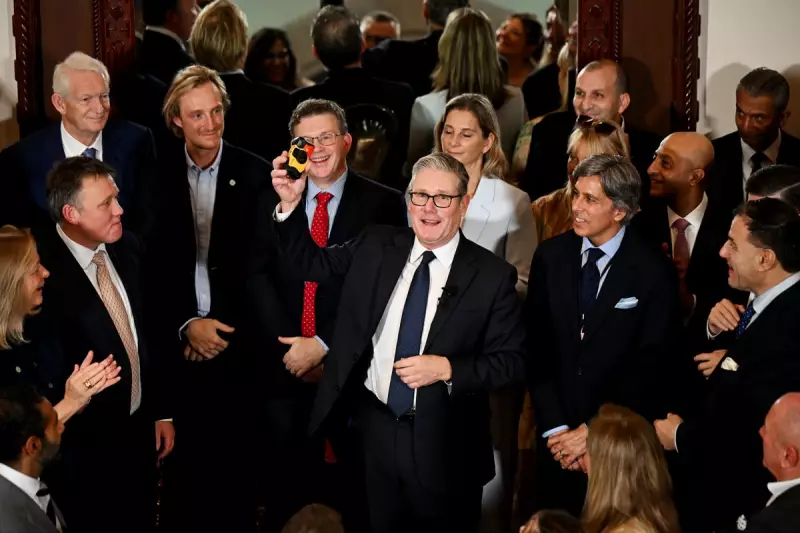
In a significant diplomatic move, Labour leader Sir Keir Starmer has held crucial talks with Indian Prime Minister Narendra Modi during his visit to Mumbai, signalling a potential reset in UK-India relations under a future Labour government.
The meeting, described as "warm and constructive," focused on strengthening economic cooperation between the two nations, with Starmer emphasising his commitment to deepening the "living bridge" connecting Britain and India.
Economic Partnership Takes Centre Stage
Starmer used the opportunity to position a future Labour administration as a reliable partner for New Delhi, particularly regarding the long-awaited free trade agreement that has faced numerous delays. "There is much more we can do together," Starmer affirmed, highlighting the mutual benefits of enhanced trade relations.
The Labour leader's engagement comes at a critical juncture, with both nations seeking to expand their economic partnership beyond current levels. Starmer emphasised the importance of building on existing ties rather than starting from scratch, acknowledging the significant Indian diaspora contribution to British society.
Security and Strategic Cooperation
Beyond economic matters, the discussions ventured into security cooperation, with Starmer expressing alignment with India's concerns about extremist violence. This represents a notable shift in tone from previous Labour positions and demonstrates Starmer's pragmatic approach to foreign policy.
The meeting also touched upon broader geopolitical issues, though specific details remain confidential between the two leaders. Sources indicate the conversation covered regional stability and counter-terrorism efforts.
Positioning for Future Governance
This high-profile engagement forms part of Starmer's strategy to establish his international credentials ahead of the next general election. By meeting with one of the world's most influential leaders, Starmer aims to demonstrate that Labour stands ready to govern and manage Britain's key international relationships.
The Mumbai meeting follows Starmer's earlier criticism of the Conservative government's approach to trade deals, particularly regarding environmental and employment standards. His engagement with Modi suggests a more flexible approach to securing international agreements while maintaining core principles.
Political analysts view this meeting as particularly significant given India's growing global influence and the UK's post-Brexit trade strategy. With India positioned to become the world's third-largest economy, strengthening this relationship remains a priority for any future British government.






